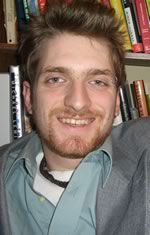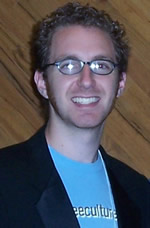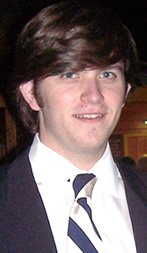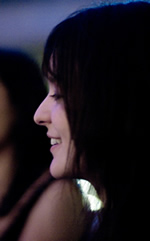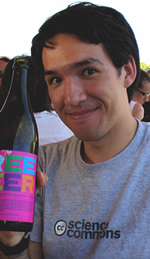Late last year, UC Berkeley implemented a new policy regarding the taking and using of course notes and other class materials. It “sets forth the limitations on use of course notes and course materials and the making and use of recordings of instructors’ class presentations,” and proceeds to describe a rather draconian regime in which students’ use of their notes and class materials – indeed, their right to take notes at all – may be severely curtailed by their professors. Berkeley’s Office of Educational Development has also posted a set of cease and desist letters that professors may use, against students or third parties.
This is the first in a series of posts addressing Berkeley’s new class notes policy – in this introductory post, I will outline the issues involved and point to places where Berkeley’s policy conflicts with federal copyright law. Future posts will include a more detailed analysis of what rights copyright law provides compared to the rights Berkeley’s policy purports to take, as well as the benefits of a permission-based access and dissemination policy over a restriction-based one (essentially, telling people what they can do rather than what they can’t); I will also discuss the validity of the concerns the new policy seeks to address – specifically the professorial interest in repressing his work versus the social interest in open access; and finally, examine what terms a genuinely useful note-taking policy might include, one based on access rather than restriction.
This new policy is an unfortunately ironic development at UC Berkeley, the site of the 2008 Students for Free Culture conference. It was at this conference that the Wheeler Declaration was drafted, which included “open educational materials” as one of the five criteria of a truly “open” university. Needless to say, Berkeley’s new restrictions on the dissemination of such materials represent a step away from the open university movement. Given that all aspects of the University of California’s mission statement – to teach, research, and serve the public – are arguably better served by more distribution of knowledge, rather than less, there seems to be an internal dissonance here as well.
Berkeley and other UC faculty have, naturally, commented on the new policy. Richard Brenneman has an excellent post detailing some of their reactions. He includes e-mails objecting to the policy from Professors Amy Kapczynski and Ignacio Chapela, both at UC Berkeley, as well as comments supportive of the new policy from Professor Robert Meister, President of the Council of UC Faculty Associations. All following quotations from these professors are derived from Mr. Brenneman’s post.
In support of the policy, Professor Meister writes that “This seems to be a belated (and welcome) implementation of AB 1773, which was CUCFA’s response to UC’s (and especially UCLA’s) attempt to exploit a gap in copyright law to claim the right to record and re-use class presentations, such as lectures, and to get adjuncts to expressly agree to this as a condition of employment.” AB 1773 is a California state law, passed in 2000, that amended the California Education Code, adding sections 66450 – 66452. Section 66450 reads as follows:
66450. (a) Except as authorized by policies developed in accordance with subdivision (a) of Section 66452, no business, agency, or person, including, but not necessarily limited to, an enrolled student, shall prepare, cause to be prepared, give, sell, transfer, or otherwise distribute or publish, for any commercial purpose, any contemporaneous recording of an academic presentation in a classroom or equivalent site of instruction by an instructor of record. This prohibition applies to a recording made in any medium, including, but not necessarily limited to, handwritten or typewritten class notes.
(b) Nothing in this section shall be construed to interfere with the rights of disabled students under law.
(c) As used in this section:
(1) “Academic presentation” means any lecture, speech, performance, exhibit, or other form of academic or aesthetic presentation, made by an instructor of record as part of an authorized course of instruction that is not fixed in a tangible medium of expression.
(2) “Commercial purpose” means any purpose that has financial or economic gain as an objective.
(3) “Instructor of record” means any teacher or staff member employed to teach courses and authorize credit for the successful completion of courses.
Professor Meister’s comments highlight some of the ideological motivations behind the Berkeley policy, which, in his view, has roots in a long-standing conflict of interest between instructors and administrators over who has control over materials created by professors in the employ of the University of California. Professor Meister ends his e-mail with a normative claim, that professorial – rather than institutional – ability to “set the terms on everything beyond note-taking” is a distinction between academics and other varieties of institutional employees that “lies at the heart of academic freedom.” But the language of the California Education Code requires that any claim to such a distinction must rest upon sound legal ground – Section 66452(a) stipulates that “[n]othing in this chapter is intended to change existing law as it pertains to the ownership of academic presentations.” §66450(c)(1) identifies academic presentations as being unfixed – precisely the sort of thing that, as Professor Kapczynski notes, federal copyright law does not protect.
Distilled, the problem Berkeley’s new policy seeks to address seems to run thus: Third parties, gaining access to class notes and materials, have been selling those materials to students and others for a profit. This has already been the subject of litigation, as in Faulkner Press, L.L.C. v. Class Notes, L.L.C., Case. No. 1:08cv49-SPM/GRJ (N.D. Fla., 2010). Disregarding, for the time being, the obvious pecuniary motivations faculty and administrators may have in curtailing such activity, there are normative considerations that are worth discussing – a professor’s right (or lack thereof) to privacy in the comments he makes to a closed classroom, for example, which will be discussed in a later post. Broadly stated, this policy, in attempting to protect the interests of some faculty members against note-selling groups, is most detrimental to students and anyone else interested in open education and technology as a route thereto.
Professor Kapczynski writes that “it’s not obvious that copyright policy offers the best (or an adequate) response to the challenges of peer-to-peer networks for our modes of teaching.” Berkeley’s policy, which responds to these challenges by asserting rights beyond those that federal copyright law actually bestows, and ignoring the availability of fair use defenses where valid rights exist, is almost certainly not the best means by which to balance the interests of institutions, faculty, students, and the public. In the next post on this topic I’ll be examining, in more detail, the interests of all parties affected, relevant copyright law and precedent, and how Berkeley’s policy interacts with both federal law and other UC policies.


